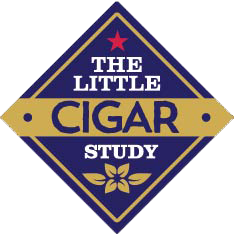The focus of the Little Cigar Study was to investigate factors related to the usage of cigarillos and little cigars in teenagers and young adults aged 14 to 28. These cigar products are most often referred to by users by brand names, such as Black & Milds, Swisher Sweets, or White Owls, or as “‘rillos,” “cigars,” or “blunts” (especially in the context of co-use with marijuana). As opposed to cigarettes, the detrimental health effects of cigar products are less well known, and their usage is more common among cohorts exhibiting disadvantaged socioeconomic status.
This study utilized computer-based survey testing to measure several dimensions related to the use of cigar products. These dimensions included factors such as parental and societal influences, dependence on nicotine, perceived self control, co-use with marijuana, and perception of the self as a smoker or non-smoker. We measured these dimensions through the use of both established metrics as well as novel methods designed to precisely determine and describe factors relevant to cigar smoking behavior. By gathering this data, our goal was to help inform culturally-relevant interventions and policy decisions related to cigarillos and little cigars.
This study was conducted under the direction of Susan Flocke, PhD, of the Departments of Family Medicine and Community Health and Epidemiology and Biostatistics at Case Western Reserve University. The study team included other researchers from Case Western Reserve University.

